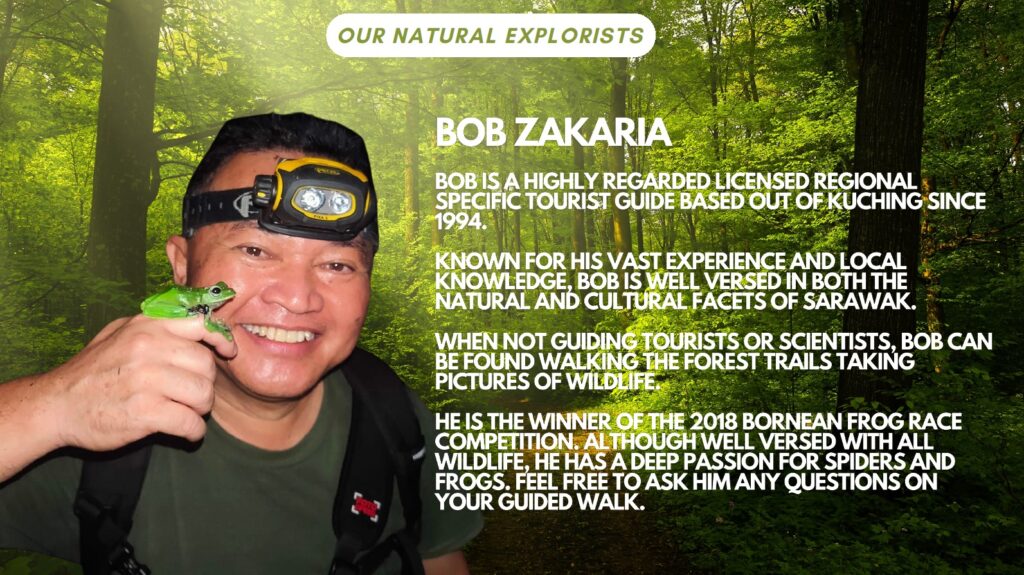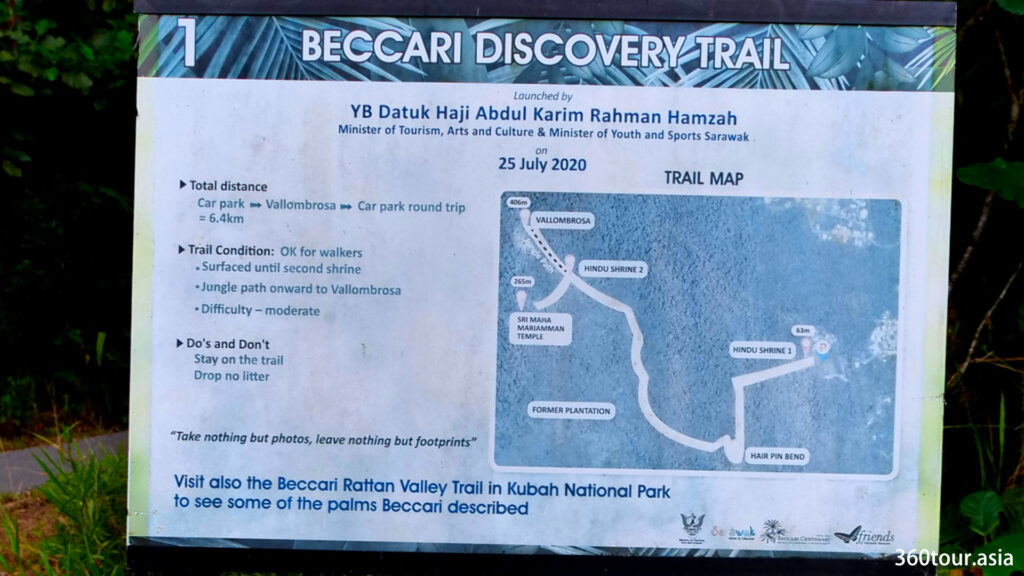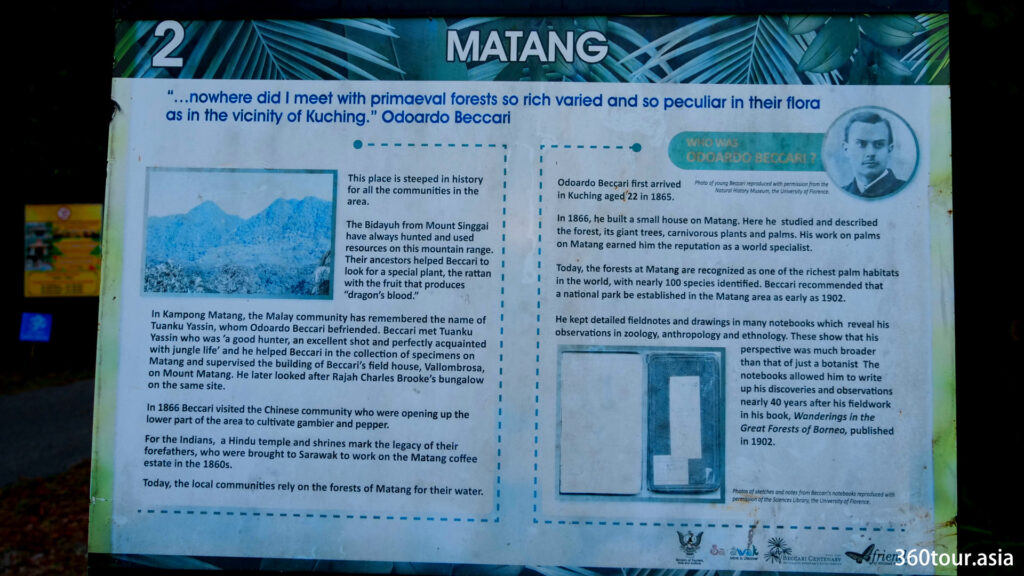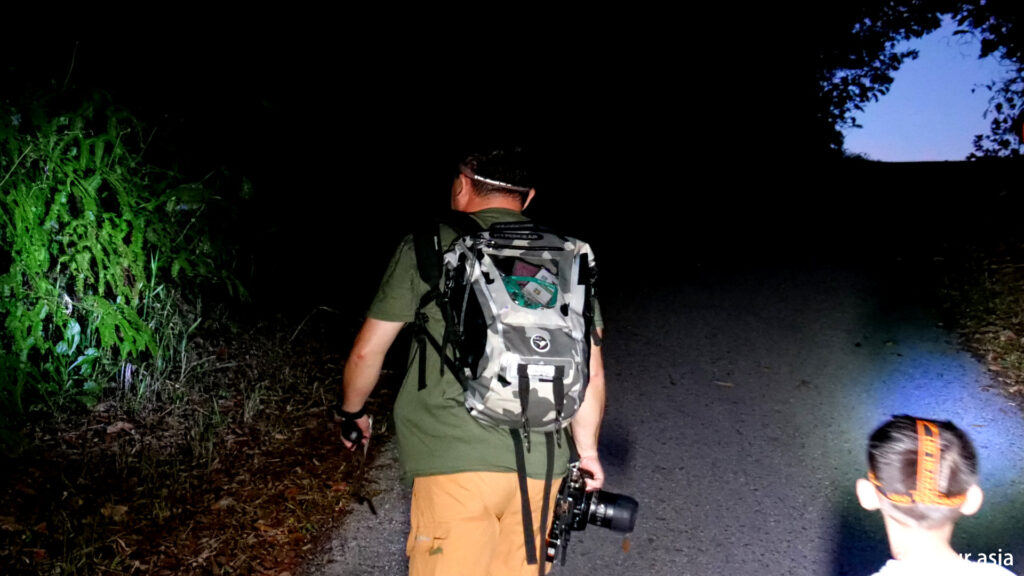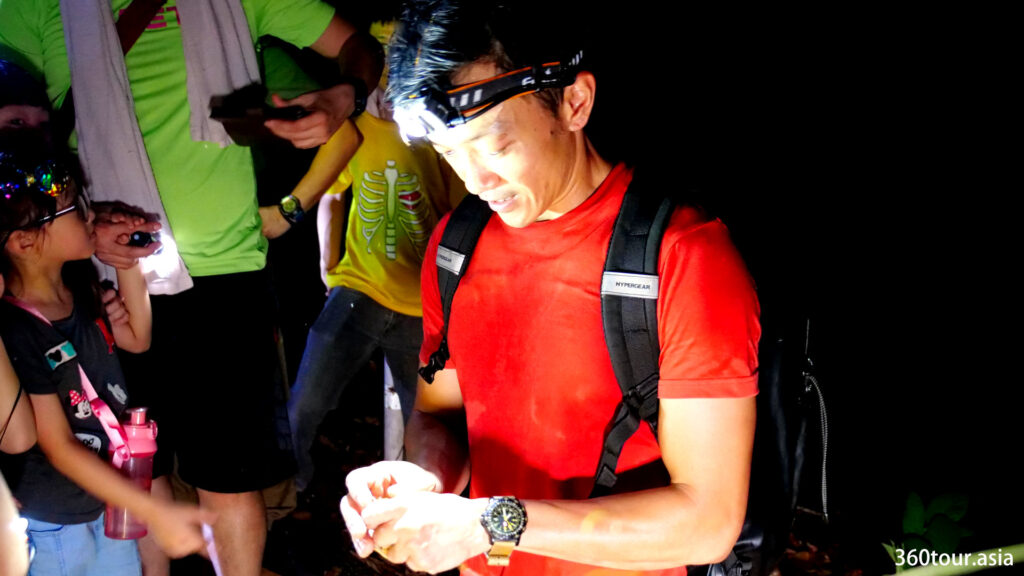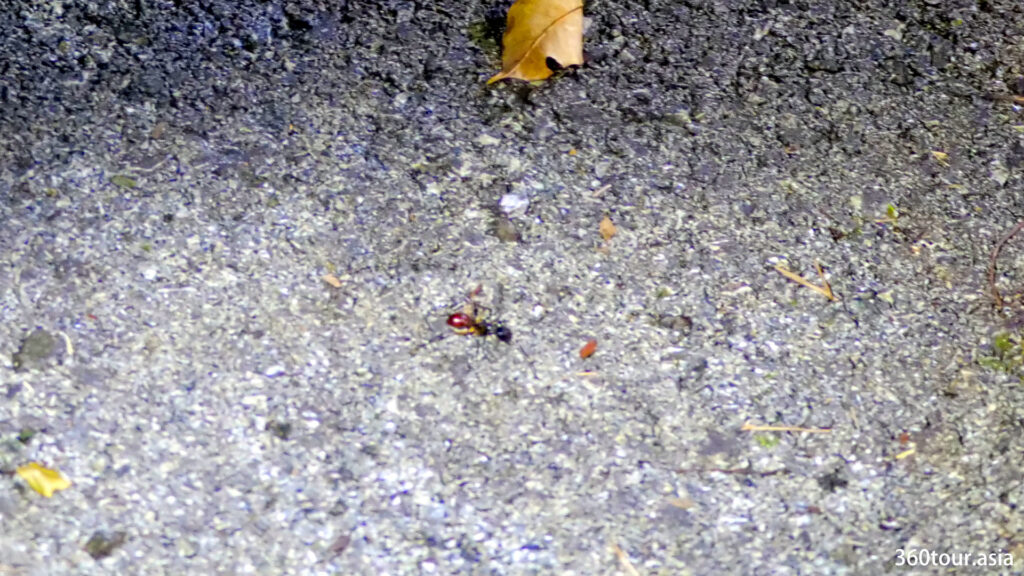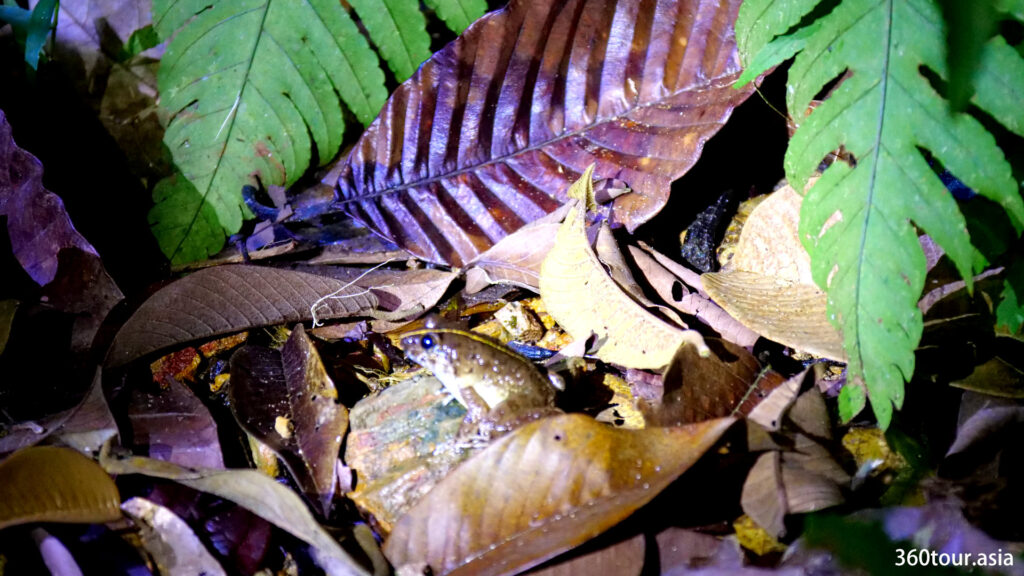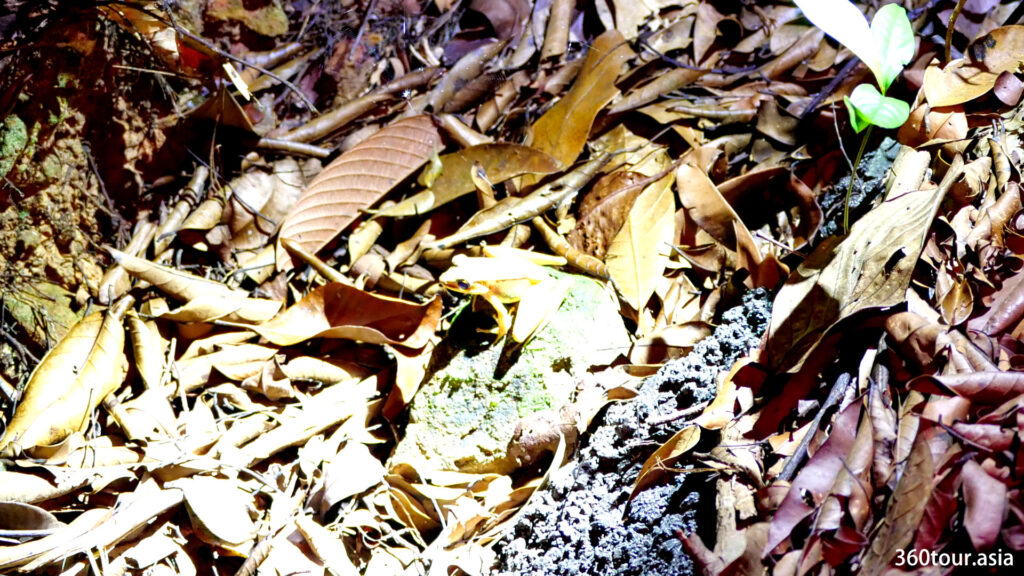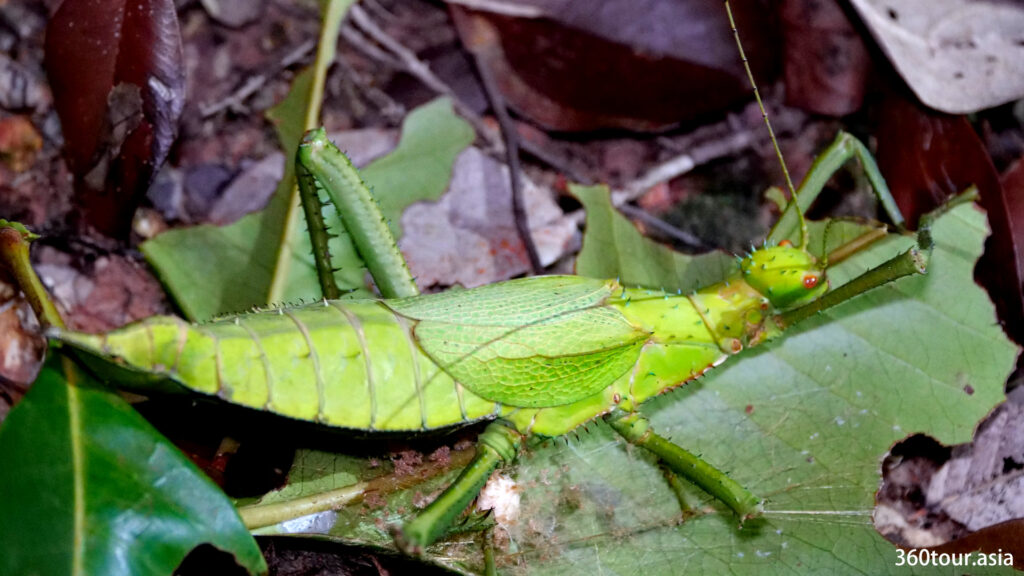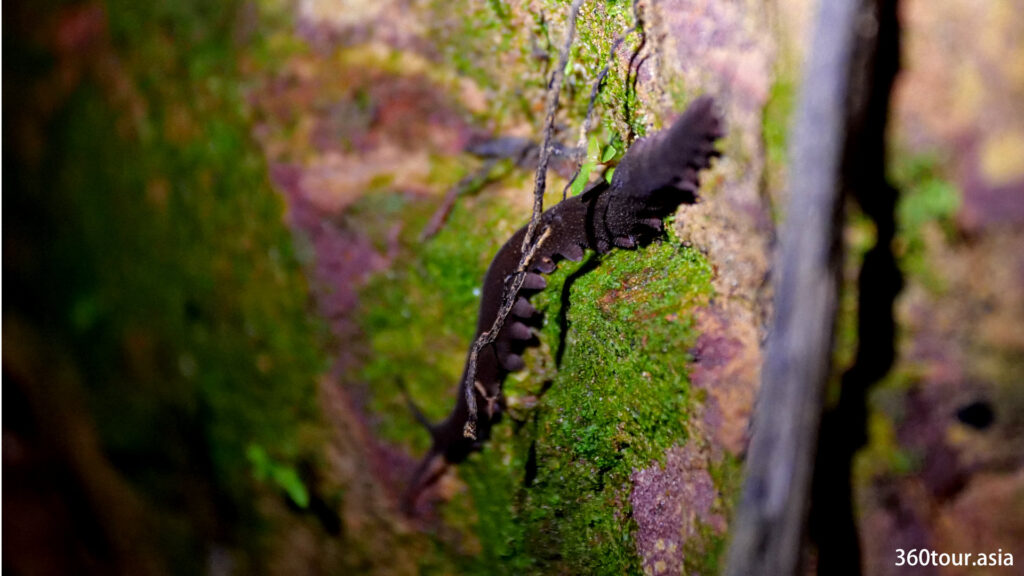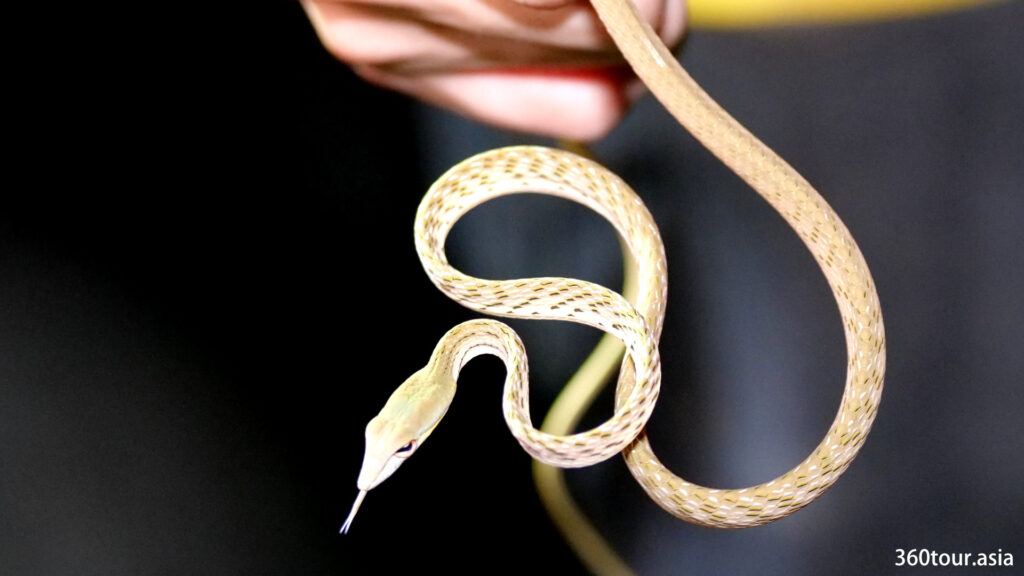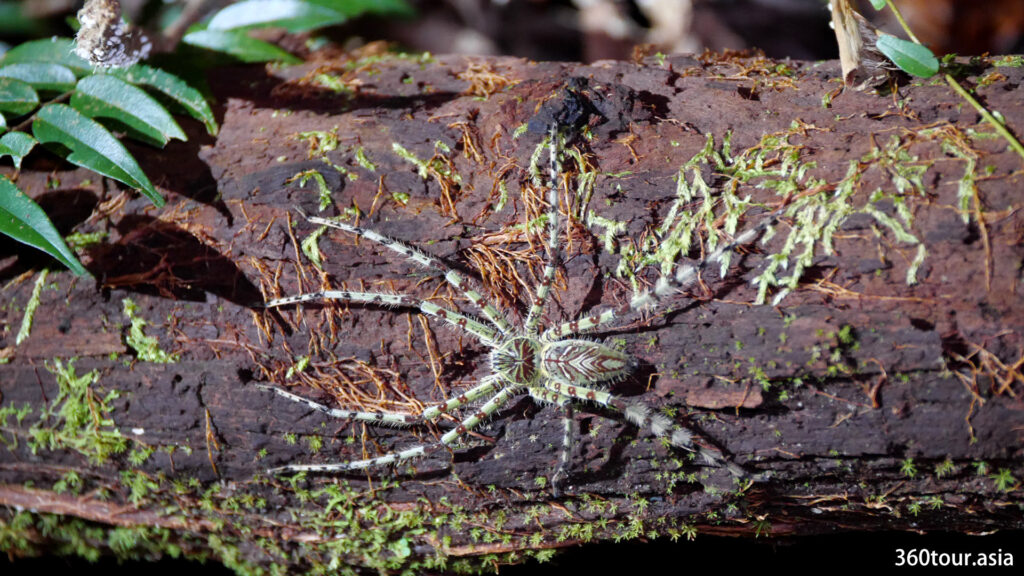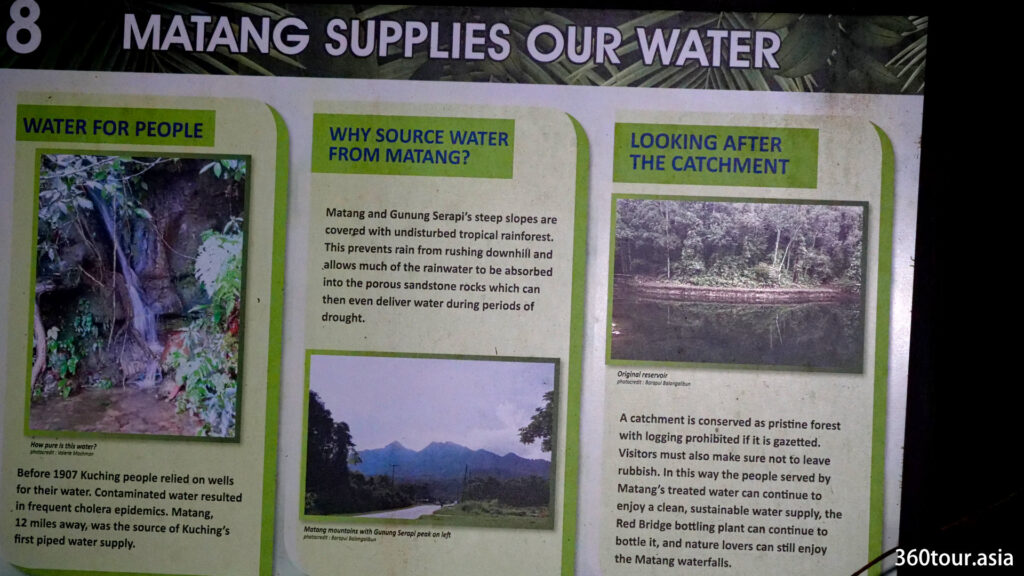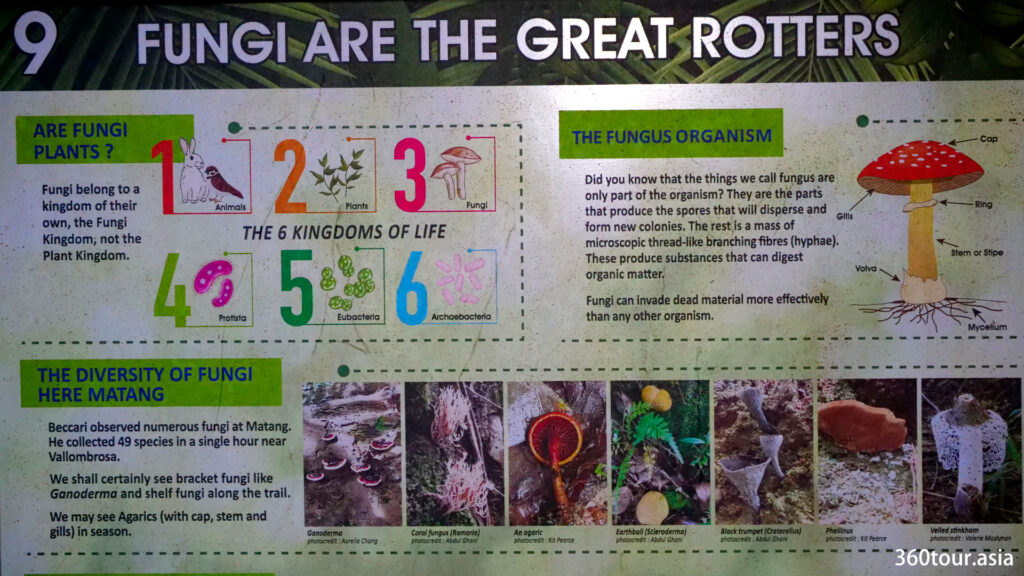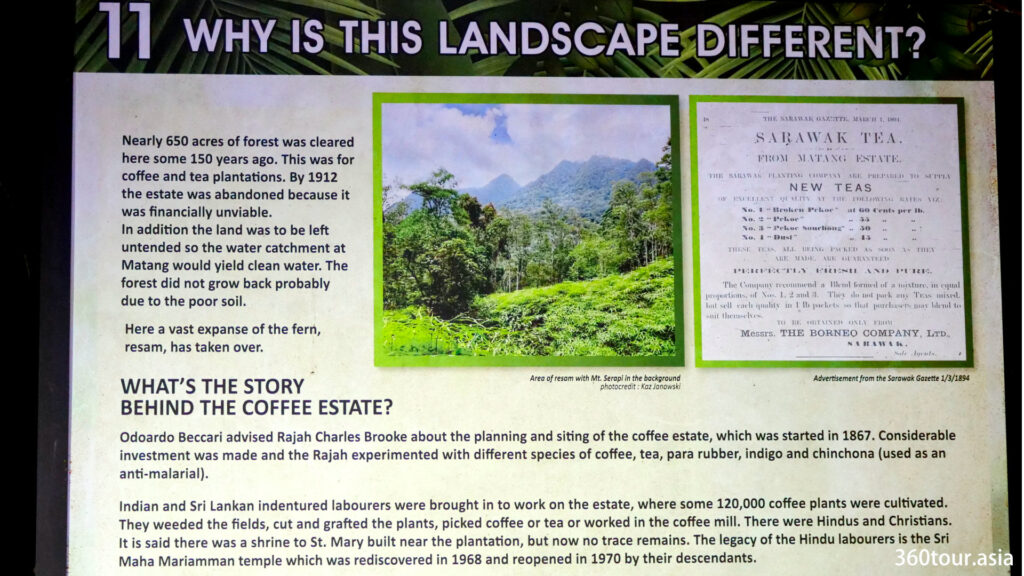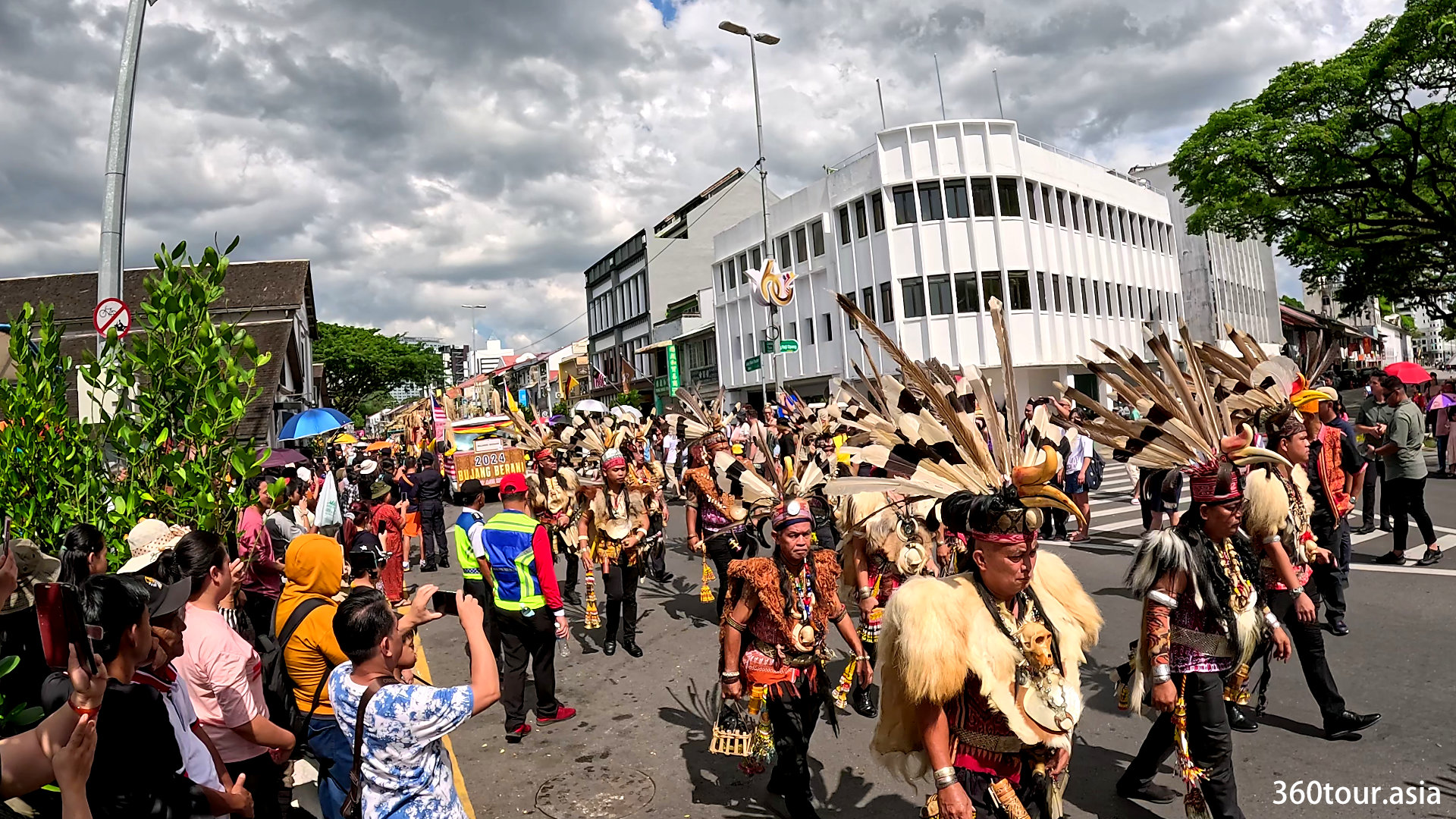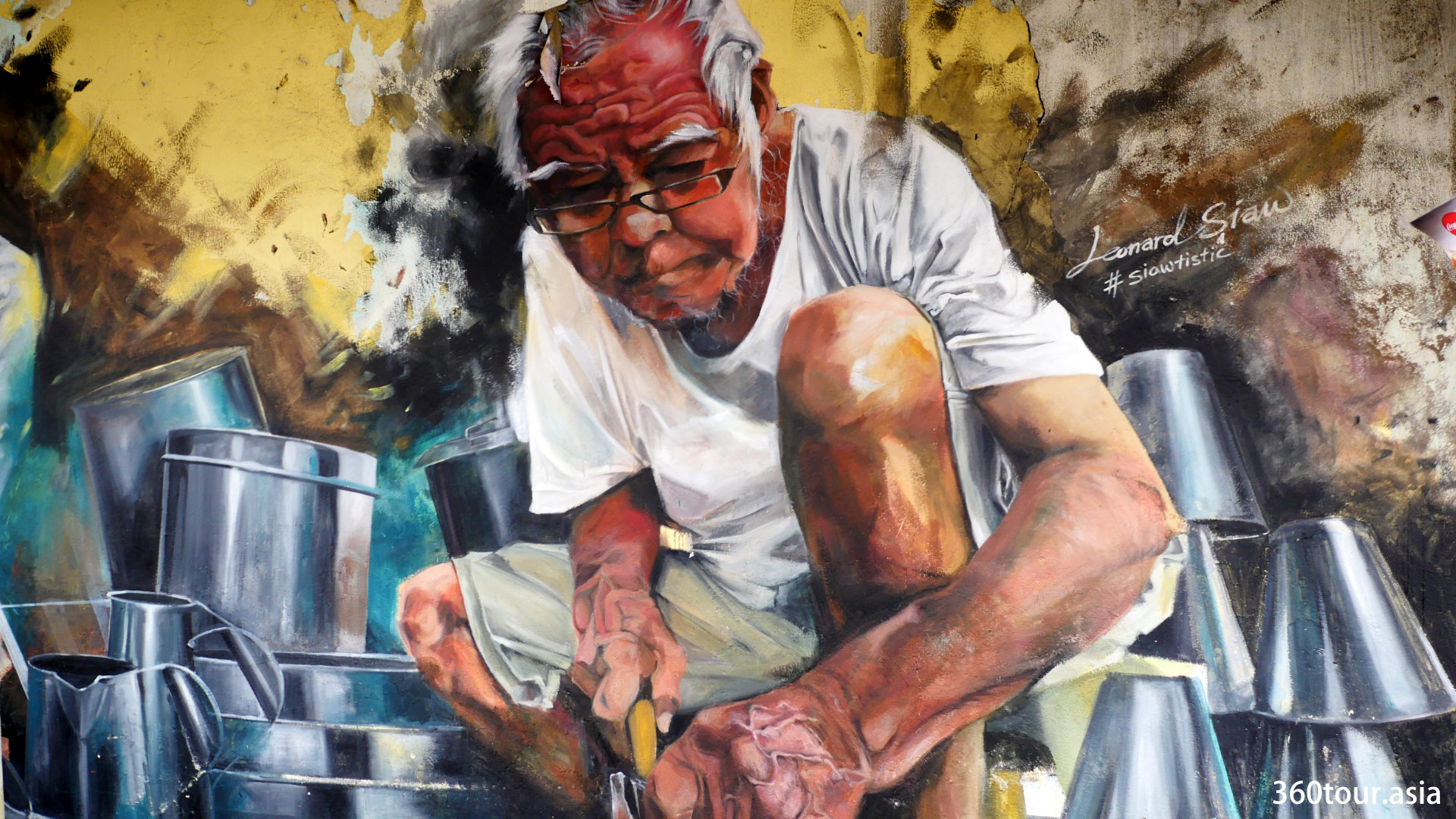The Mount Matang Beccari Discovery Trail is named after a famous botanist and nature research specialist – Odoardo Beccari – who did a deep study on the biodiversity of Mount Matang in its pristine rainforest. Until today, the trail on the Mount Matang that leads to the Sri Maha Mariamman Temple Matang and his field house the Vallombrosa. Along the trail visitors still can appreciate vast amounts of biodiversity from different animals, plants, birds, insects and fungi. It is a worthy field trip to understand the biodiversity of pristine rainforest.
Name: Mount Matang Beccari Discovery Trail, Sri Maha Mariamman Temple Matang Trail
Address: Sri Maha Mariamman Temple Matang, Kampung Matang, 93050 Kuching, Sarawak
Latitude : 1.5903939571402406
Longitude : 110.22220373153688
Open map with : [Waze] [Google Map] [Bing Map] [HERE Map]
Visitors cannot drive up to the Sri Maha Mariamman Temple Matang but allowed to park at the foothill carpark. The carpark is spacious enough for a field trip of several families. There are simple toilet beside the carpark, however it is not powered by any electricity.
After parking, visitors may walk around and enjoy the foothill scenery as the majestic Gunung Serapi is just nearby. During the late evening there are many birds and insect nearby, creating a great symphony of the forest.
Below is the video we captured during the Night Walk at the Mt Matang Beccari Discovery Trail.
Jerry and Bob is the guide for the night walk.
Bob is a highly regarded licensed regional specific tourist based out of Kuching since 1994.
Known for his vast experience and local knowledge, Bob is well versed in both the natural and cultural facets of Sarawak.
When not guiding tourist or scientist, Bob can be found walking the forest trails and taking pictures of wildlife.
He is the winner of the 2018 Borneon Frog Race competition. Although well versed with all wildlife, he has a deep passion for spiders and frogs.
Jerry worked as a research officer for heart of Borneo Brunei Darussalam and has since then struck out into guiding.
He spends his time both in Kuching and Brunei guiding students on their masters and doctoral field seasons.
An avid photographer, he specialized in snakes and camera trapping for mammal surveys. When not working, He travels the various national parks of Sarawak, Sabah and Brunei looking for snakes as well as volunteering for various NGOs.
Things to bring for the Night Walk :
- Wear comfortable walking shoes
- Bring enough water for yourself and family
- Bring a torchlight or headlamp
- Snacks for your children if required
- Hiking pole (if required)
- Personal medication
- Insect repellent
- Raincoat / Umbrella
General rules and etiquette:
- Strictly no handling of wildlife encountered
- Strictly no walking off paved road
- Please keep noise to a minimum
- Please listen to your guides

Entrance signage to the Mt Matang Beccari Discovery Trail to Sri Maha Mariamman Temple Matang, Kuching
At the entrance of the trail to Sri Maha Marianmman Temple Matang, there is a clear signage of the distance to the landmark on the Mount Matang. There are three notable landmark :
- Sri Muniswarar Temple (Foot Hill)
- Sri Jada Muniswarar Temple (Approximately 2.5 km walk along the trail)
- Sri Maha Mariamman Temple Mount Matang (Approximately 3km walk along the trail)
There are a split path at the Sri Jada Muniswarar Temple junction where one way will lead to Sri Maha Mariamman Temple Mount Matang and another way will be leading to Vallombrosa.
The Beccari Discovery Trail is launched by YB Datuk Haji Abdul Karim Rahman Hamzah, Minister of Tourism, Arts and Culture and Minister of Youth and Sports Sarawak on 25th July 2020.
The total distance is around 6.4km round trip between the car park to Vallombrosa.
The trail condition is generally suitable for most walkers from car park to second shrine with elevation change of 63 meters to 265 meters above sea level. However if wish to walk from the 2nd shrine to Vallombrosa, it is a inclined jungle path with elevation change to 406 meters above sea level, and it may be moderate difficulty for most walkers.
In general the Do’s and Don’t are simple. Do stay on the trail and Don’t drop any litter along the trail. “Take nothing but photos, leave nothing but footprints.”
The famous quote by Odoardo Beccari “…nowhere did i meet with primaeval forest so rich varied and so peculiar in their flora as in the vicinity of Kuching”.
Odoardo Beccari was first arrived in Kuching at age 22 in 1865.
In 1866, he built a small house on Matang where he studies and described the forest, its giant trees, carnivorous plants and palms. His work on palms on Matang earned him the reputation as a world specialist.
Today, the forests at Matang are recognized as one of the richest palm habitats in the world with nearly 100 species identified.
This place is steeped in history for all the communities in the area.
The Bidayuh from Mount Singgai have always hunted and used resources on this mountain range. Their ancestors helped Beccari to look for a special plant, the rattan with the fruit that produces “dragon’s blood”.
In Kampong Matang, the Malay community has remembered the name of Tuanku Yassin, whom Odoardo Beccari befriended. Beccari met Tuanku Yassin who was a good hunter, an excellent shot and perfectly aquainted with jungle life and he helped Beccari in the collection of specimens on Matang and supervised the building of Beccari’s field house, Vallombrosa, on Mount Matang.
In 1866 Beccari visited the Chinese community who were opening up the lower part of the area to cultivate gambier and pepper.
For the Indians, a Hindu temple and Shrines mark the legacy of their forefathers, who were brought to Sarawak to work on the Matang coffee estate in the 1860s.
Today, the local communities rely on the forests of Matang for their water. The Matang Dam is just located not far at the foothill of the Mount Matang.
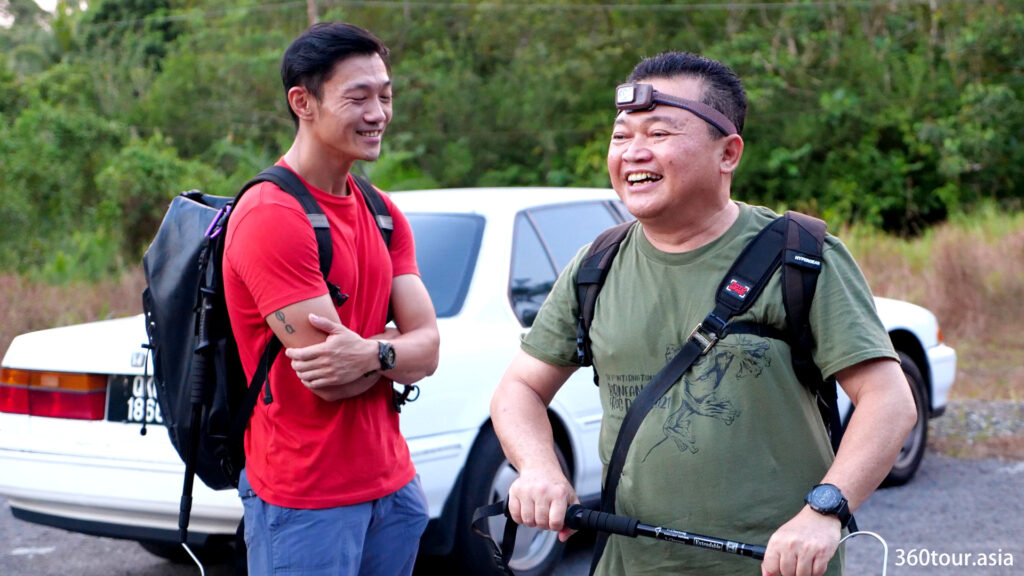
Our experienced natural explorist, Jerry and Bob guided our night walk trip along the Beccari Discovery Trail.
The local famous experienced natural explorist, Jerry and Bob, guided us along the Beccari Discovery Trail at night. The night walk is organised as it is the best time to see the amazing flora and fauna at night.
Various animals and insects are easily spotted at night along the trail as many of the nocturnal creatures came out at night. Along the trail to the Temple, we spotted various insects, cicadas, spiders, frogs, snakes and even civets during the night walk along the trail.
Before the start of the Night Walk, Jerry and Bob gave a good explanation about history of this place, do and don’t in the forest and things to be prepared. Bob ascertain that the trip is safe as long as we follow his guide and instruction along the way.
The night walk started at 7pm when the night sky is dark and orchestra of insects can be heard all around. Bob guided the whole group in the journey along the trail, spotting animals and insects and share his knowledge on these creatures.
Many plants attract ants and other insects by producing nectar or food bodies in their stems and leave terrestrial ant-plants include Macaranga (benua) some rattans and pitcher plants Nepenethes (priuk kera) .
When the Rainforest was cleared for cultivation, it can quickly regenerates into secondary forest. The secondary forest grows very fast with pioneer species such as Macaranga (benua) and Dillenia (simpah).
“… in a tropical country covered with virgin forest, … hundreds of species of trees, lianas, and epiphytes can be found crowded together in an area of a few square miles …” Odoardo Beccari.
Beccari described Sarawak’s forest as having numerous species. Right here we can experience hundreds of species of plants as well as fungi and animals, both vertebrates and invertebrates.
Vertebrates are animals with backbones. The vertebrates at Beccari Discovery Trail may includes various species of birds, snakes, lizards and civets.
Invertebrates are animals without backbones. The Invertebrates at Beccari Discovery Trail may includes various species of earthworms and leeches; slugs and snails; spiders, millipedes and inscets such as beetles, cicadas, mantids, termites, butterflies, moths, their caterpillars and stick insects.
This forest is home to venomous snakes, toads and scorpions, hence it is important to go with experienced guide, stay on the road and respect the creatures. The forest at night is equally as exciting as they are easier to be spotted as they are sleeping and some animals are active at night.
Spot animals at night by:
- Use your torch to look for eyeshine; many tiny pairs of eyes (Spiders) or maybe a bigger pair (slow loris) will reflect back at you.
- Look at twigs and leaves; some animals choose a very unstable perch that will shake if a predator gets close.
- Look on leaf surfaces for a tree frog held there by suction disc on its ‘fingertips’, stick insects and moths.
- Look closely at the earthy roadside banks to see scorpions and tarantula burrows lined with silk.
- Listen for frog and toad calls and then look where you heard the call coming from.
On the Beccari Discovery Trail at night you may see:
- Mammals: the eyeshine of a slow loris clinging to a tree trunk. Look out for bats too.
- Reptiles: Snakes – a pit viper waiting motionless for its prey. Forest geckos and lizards are around.
- Amphibians: Frogs come out to mate and spawn after heavy rain.
- Invertebrates: Spiders waiting on gossamer webs or clinging to a thin trunk; stick insects; scorpions.
It is an amazing night walk at the Beccari Discovery Trail, meeting various animals and insects that never been seen before by the city folks. It is an eye opening journey to the biodiversity of Sarawak.
Belian is a heavy hardwood. It is among Sarawak’s heaviest timbers and one of the most durable. Belian timber can last more than 100 years outdoor. It is very dense and resists insect and fungal attack.
Beccari said belian was once very common near Vallombrosa. In the past woodworkers would choose belian for outdoor use – for house posts, walling, roof shingles, wharfs and jetties and survey pegs.
Belian timber takes long time to grow. A seedling take decades to reach 10cm in diameters. Japanese researchers estimated the age of belian trees at Matang to be well over 1,000 years old. Belian trees are said to be the oldest individual tree in any rainforest in Sarawak.
Sarawak declared belian a Heritage Tree in 2019. As such, export of the tree and its products will no longer be allowed. This will help to ensure this species will not become extinct.
Matang and Gunung Serapi’s steep slopes are covered with undisturbed tropical rainforest. Matang was the source of Kuching’s first piped water supply.
The pristine forest with logging prohibited ensure the water in the catchment can be clean and sustainable water supply for the population.
Beccari observed numerous fungi at Matang. In history, he collected 49 species in a single hour near vallombrosa. Along the Beccari Discovery Trail there are several fungi species can be seen.
Recyclers include invertebrates such as termites and beetles as well as microgorganisms and fungi. They break down fallen trunks, branches and forest litter such as fallen twigs, leaves, flowers and fruits. This is vital work that makes nutrients available to plants.
Out of the vast pristine rainforest at Mount Matang, there are a area of land that have different landscape. It is known that more than 150 years ago, there are nearly 650 acres of the forest was cleared for coffee and tea plantations. In 1867, 120,000 coffee plants were cultivated. Indian and Sri Lankan indentured laborers were brought in to work on the estate.
By 1912 the estate was abandoned because it was financially unviable. The land was left untended. Vast expanse of fern, resam has taken over.
The legacy of the Hindo labourers is the Sri Maha Mariamman tempke which was rediscovered in 1968 and reopened in 1970 by their descendants.
In conclusion the Beccari Discovery Trail is full of amazing discoveries, may it be history or biodiversity, it never fails to amaze us during the trip. It is one of the recommended trail that people can visit, especially tourist who are interested in history and wildlife. It is best if your trip is guided by a experienced guide as there are more things to know than what the eyes can see.
